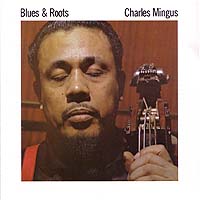See also
| This disambiguation page lists articles associated with the title The World Is Flat. If an internal link led you here, you may wish to change the link to point directly to the intended article. |
The World Is Flat is a 2005 book written by Thomas Friedman.
The World Is Flat may also refer to:
| This disambiguation page lists articles associated with the title The World Is Flat. If an internal link led you here, you may wish to change the link to point directly to the intended article. |

"Golden Brown" is a song by the English rock band the Stranglers. It was released as a 7" single, on Liberty, in December 1981 in the United States and in January 1982 in the United Kingdom. It was the second single released from the band's sixth album La folie. It peaked at No. 2 in the UK Singles Chart, the band's highest ever placing in that chart.

Modern flat Earth societies are organizations that promote the pseudoscientific belief that the Earth is flat while denying the Earth's sphericity, contrary to over two millennia of scientific consensus. Such groups date from the middle of the 20th century; some adherents are serious and some are not. Those who are serious are often motivated by religion or conspiracy theories.

Harry Edward Nilsson III, known professionally as Nilsson, was an American singer-songwriter who achieved the peak of his commercial success in the early 1970s. His work is characterized by pioneering vocal overdub experiments, returns to the Great American Songbook, and fusions of Caribbean sounds. A tenor with a 3 1⁄2 octave range, Nilsson was one of the few major pop-rock recording artists of his era and others to achieve significant commercial success without ever performing major public concerts or undertaking regular tours. The craft of his songs and the defiant attitude he projected remains a touchstone for later generations of indie rock musicians.

Thomas Morgan Robertson, known by the stage name Thomas Dolby, is an English musician, producer, entrepreneur and teacher. He came to prominence in the 1980s, releasing hit singles including "She Blinded Me with Science" (1982) and "Hyperactive!" (1984). He has also worked in production and as a session musician. In the 1990s he founded Beatnik, a Silicon Valley software company whose technology was used to create the Nokia tune. He was also the music director for the TED Conference. On faculty at the Peabody Institute at Johns Hopkins University since 2014, Dolby leads Peabody’s Music for New Media program, which enrolled its first students in the fall of 2018.

The Long Road is the fourth studio album by Canadian rock band Nickelback, released on September 23, 2003. The album was recorded at famed Greenhouse Studios in Vancouver, British Columbia. It is the band's last album with Ryan Vikedal as drummer.
"Mr. Roboto" is a song written by Dennis DeYoung of the band Styx, and recorded on the Styx album Kilroy Was Here. It was also released as a 45 RPM single in a 4:44 single edit, which has the synthesizer intro and a bar at the finale removed, with the song "Snowblind" as the B-side. In Canada, it went to #1 on the RPM national singles chart. In the U.S., it reached #3 on the Billboard Hot 100 in April 1983.
"Love for Sale" is a song by Cole Porter introduced by Kathryn Crawford in the musical The New Yorkers which opened on Broadway on December 8, 1930 and closed in May 1931 after 168 performances. The song is written from the viewpoint of a prostitute advertising "love for sale".

Quentin Dupieux, also known by his stage name Mr. Oizo, is a French electronic musician, DJ and filmmaker, best known for his 1999 single "Flat Beat". His pseudonym is a corruption of the French oiseau, meaning "bird". He is signed to F Communications, Ed Banger Records and Brainfeeder. Dupieux uses his full name for his cinematic work, Mr. Oizo being only used for his musical work.

Blues & Roots is an album by Charles Mingus, recorded in 1959 and released in 1960. It has been reissued on CD, by Atlantic Records and Rhino.

"The Dogs of War" is a song by Pink Floyd from their 1987 album, A Momentary Lapse of Reason. It was the third single from the album in the US and Australia. Live versions have an extended intro, an extended middle solo for the saxophone, a guitar and sax duel and a longer outro as compared to the album version. The track was a minor rock radio hit in the US and reached #16 on MTV's Video Countdown in May 1988.
"The Way You Look Tonight" is a song from the film Swing Time that was performed by Fred Astaire and composed by Jerome Kern with lyrics written by Dorothy Fields. It won the Academy Award for Best Original Song in 1936. Fields remarked, "The first time Jerry played that melody for me I went out and started to cry. The release absolutely killed me. I couldn't stop, it was so beautiful."

"Under the Sea" is a popular song from Disney's 1989 animated film The Little Mermaid, composed by Alan Menken with lyrics by Howard Ashman and based on the song "The Beautiful Briny" from the 1971 film Bedknobs and Broomsticks. It is influenced by the Calypso style of the Caribbean which originated in Trinidad and Tobago, as well as Reggae, which originated in Jamaica. The song was performed in the film by Samuel E. Wright. The track won the Academy Award for Best Original Song in 1989, as well as the Grammy Award for Best Song Written for Visual Media in 1991.

"A House Is Not a Home" is a 1964 ballad recorded by American singer Dionne Warwick, and written by the team of Burt Bacharach and Hal David for the 1964 film of the same name, starring Shelley Winters and Robert Taylor. The song was a modest hit in the United States for Warwick, peaking at #71 on the pop singles chart as the B-side of the top 40 single, "You'll Never Get to Heaven ". Another version of the song, by Brook Benton, which was the version that appeared in the film, was released at nearly the same time. It debuted two weeks earlier on the Billboard Hot 100. Benton's version split airplay with Warwick's, and ultimately peaked at #75.
"What's New?" is a 1939 popular song composed by Bob Haggart, with lyrics by Johnny Burke. It was originally an instrumental tune titled "I'm Free" by Haggart in 1938, when Haggart was a member of Bob Crosby and His Orchestra. The tune was written with a trumpet solo, meant to showcase the talents of band-mate Billy Butterfield. Crosby's orchestra recorded "I'm Free" the same day it was written.
"Climb Ev'ry Mountain" is a show tune from the 1959 Rodgers and Hammerstein musical The Sound of Music. It is sung at the close of the first act by the Mother Abbess. It is themed as an inspirational piece, to encourage people to take every step toward attaining their dreams.
"The God That Failed" is a song by American heavy metal band Metallica, from their 1991 self-titled album. The song was never released as a single, but was the first of the album's songs to be heard by the public. It is one of Metallica's first original releases to be tuned half a step down.

Flat Baroque and Berserk is the fourth album by English folk / rock singer-songwriter and guitarist Roy Harper, and was first released in 1970 by Harvest Records.

Bobby Ray Simmons Jr., better known by his stage name B.o.B, is an American rapper, singer, songwriter, record producer, and conspiracy theorist from Decatur, Georgia. In 2006, B.o.B was discovered by Brian Richardson, who then introduced him to TJ Chapman, who subsequently brought him to American record producer Jim Jonsin. After hearing his music, Jonsin signed B.o.B to his Rebel Rock Entertainment imprint. Two years later, Jonsin and B.o.B signed a joint venture deal, with Atlantic Records and American rapper T.I.'s Grand Hustle Records.

"Tennessee Flat Top Box" is a song written and recorded by American country music singer Johnny Cash. It was released as a single in late 1961, reaching 11 on the Billboard country singles charts and 84 on the pop charts. The song's name refers to a steel-stringed acoustic guitar.
"The World Is Flat" is the first single from Echobelly's third album Lustra. It was released by the Britpop group on 11 August 1997.